Can Turtles Eat Tomatoes? Exploring the Diet of These Reptiles 2024
Can Turtles Eat Tomatoes?
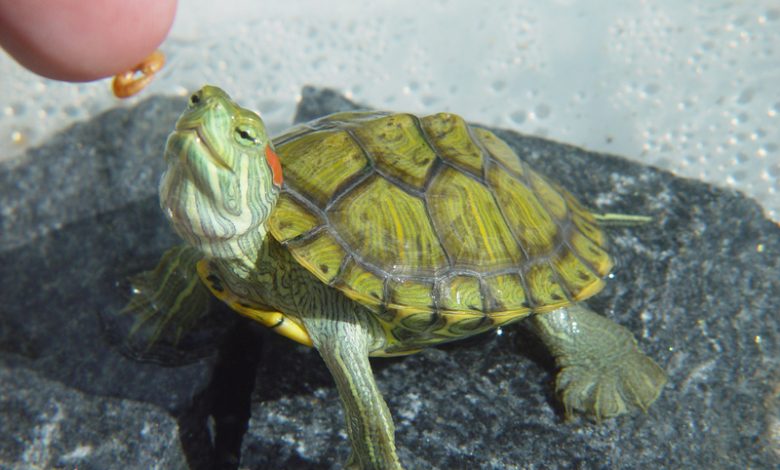
Can Turtles Eat Tomatoes? Turtles are fascinating reptiles with diverse dietary preferences. While some turtles are herbivores, others are carnivores or omnivores. One common question that turtle owners often have is whether turtles can eat tomatoes. In this article, we will explore the natural diet of turtles, investigate whether turtles can safely consume tomatoes, discuss safe foods for turtles, provide feeding guidelines for pet turtles, highlight common mistakes in turtle diet, identify signs of a healthy turtle diet, and address special considerations for baby turtles. Additionally, we will touch upon the feeding habits of turtles in the wild and the impact of human feeding on their natural food sources. By the end of this article, you will have a better understanding of what turtles can and should eat.
Table of Contents » Can Turtles Eat Tomatoes?
Key Takeaways
- Turtles have diverse dietary preferences, with some being herbivores, carnivores, or omnivores.
- Tomatoes can be safely consumed by turtles, but they should be fed in moderation.
- Leafy greens, vegetables, fruits, and protein sources are all safe and nutritious foods for turtles.
- Feeding guidelines for pet turtles include determining the right diet, feeding frequency, portion sizes, and providing supplements and vitamins.
- Common mistakes in turtle diet include feeding incorrect foods, overfeeding, lack of variety, and neglecting calcium and vitamin D.
The Natural Diet of Turtles
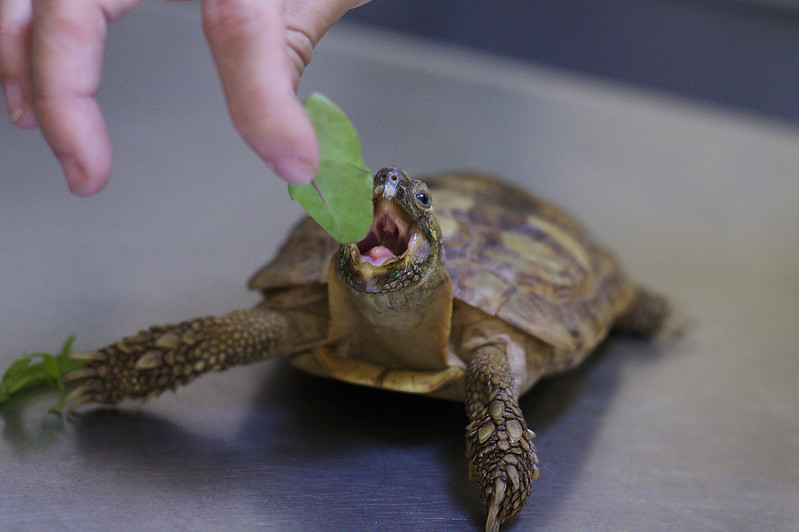
Herbivorous Turtles
Herbivorous turtles primarily feed on plant matter such as leafy greens and vegetables. While tomatoes are technically a fruit, they are often considered a vegetable in culinary contexts. Tomatoes can be included in the diet of herbivorous turtles in moderation. However, it is important to note that tomatoes should not be the main component of their diet. They should be offered as a treat occasionally, rather than a staple food.
It is also worth mentioning that turtles can survive for a considerable amount of time without food. In the wild, turtles have been known to go without food for several weeks or even months, especially during hibernation or periods of scarcity. However, it is not recommended to intentionally deprive turtles of food for extended periods as it can have negative health consequences. Regular and balanced feeding is essential for their overall well-being.
Carnivorous Turtles
Carnivorous turtles have a diet primarily composed of animal matter, such as insects, fish, and small amphibians. They have sharp beaks and strong jaws that allow them to capture and consume their prey. While carnivorous turtles can eat a variety of meat-based foods, it is important to note that not all types of meat are suitable for them. Protein is an essential component of their diet, providing the necessary nutrients for growth and development.
It is not recommended to feed carnivorous turtles tomatoes as they are not a natural part of their diet. Tomatoes are high in water content and low in protein, which may not provide the necessary nutrition for these turtles. Additionally, tomatoes contain solanine, a toxic substance that can be harmful to turtles if consumed in large quantities.
If a carnivorous turtle is not provided with food for an extended period, it can survive for several weeks to a few months, depending on its size, age, and overall health. However, it is important to note that prolonged starvation can have detrimental effects on a turtle’s health and well-being. It is crucial to provide a balanced and appropriate diet to ensure the longevity and vitality of carnivorous turtles.
Omnivorous Turtles
Omnivorous turtles have a more varied diet compared to herbivorous and carnivorous turtles. They can eat both plant matter and small animals. While tomatoes are technically safe for turtles to eat, they should be given in moderation. Tomatoes are high in water content and lycopene, which is a beneficial antioxidant. However, they are also acidic and can cause digestive issues if consumed in large quantities. It is important to remember that turtles have specific dietary needs and should not rely solely on tomatoes for nutrition.
Turtles can survive for a period of time without food. The exact duration depends on various factors such as the turtle’s species, age, and overall health. Generally, turtles can go without food for several weeks to a few months. However, it is not recommended to intentionally deprive turtles of food for extended periods as it can negatively impact their health and well-being. Regular and balanced feeding is essential to ensure the longevity and vitality of pet turtles.
Can Turtles Eat Tomatoes?
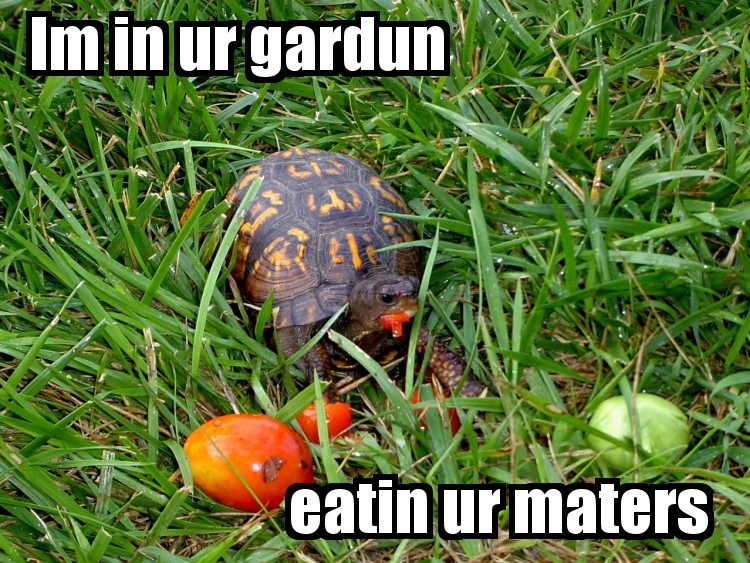
Understanding Turtle Digestive System
Turtles have a unique digestive system that allows them to process a variety of foods. While they are primarily herbivorous, some turtles have the ability to digest meat as well. However, it is important to note that not all foods are suitable for turtles, including tomatoes.
Can turtles eat tomatoes?
Tomatoes are not recommended as a regular part of a turtle’s diet. While they may be attracted to the bright color and juicy texture of tomatoes, they do not provide the necessary nutrients that turtles need to thrive. Tomatoes are high in acidity and can cause digestive issues for turtles. It is best to stick to a diet that consists of foods that are more suitable for turtles.
How long can turtles live without food?
Turtles have the ability to survive for extended periods without food. This is due to their slow metabolism and ability to store energy. However, it is not recommended to withhold food from turtles for long periods of time as it can have negative effects on their health. It is important to provide turtles with a balanced and nutritious diet to ensure their overall well-being.
The Nutritional Value of Tomatoes
Can turtles eat tomatoes? While turtles are known to have a diverse diet, tomatoes should be given to them in moderation. Tomatoes are high in water content and contain a good amount of vitamins and minerals. However, they are also acidic and can cause digestive issues if consumed in large quantities. It is important to note that not all turtles may enjoy or tolerate tomatoes well. It is recommended to consult with a veterinarian or reptile expert before introducing tomatoes into a turtle’s diet.
How long can turtles live without food? Turtles are known for their ability to survive for long periods without food. Depending on the species, turtles can go without eating for several weeks to months. This is due to their slow metabolism and ability to store energy. However, it is not recommended to intentionally starve a turtle as it can lead to health problems. Regular feeding and a balanced diet are essential for the overall well-being of turtles.
Potential Risks of Feeding Tomatoes to Turtles
While tomatoes may seem like a harmless and tasty treat, they can actually pose potential risks to turtles. Tomatoes contain a substance called solanine, which is toxic to turtles in large quantities. Solanine can cause digestive issues and even lead to poisoning. It is important to note that the green parts of the tomato, including the stem and leaves, contain higher levels of solanine compared to the ripe fruit.
Turtles have a slow metabolism and are not able to process certain foods efficiently. Feeding them tomatoes can result in digestive problems such as diarrhea or constipation. Additionally, tomatoes are acidic in nature, which can disrupt the pH balance in a turtle’s digestive system.
To ensure the health and well-being of your turtle, it is best to avoid feeding them tomatoes altogether. Instead, focus on providing a balanced diet consisting of turtle-safe foods that meet their nutritional needs. If you have any concerns about your turtle’s diet, consult a veterinarian who specializes in reptiles.
Safe Foods for Turtles
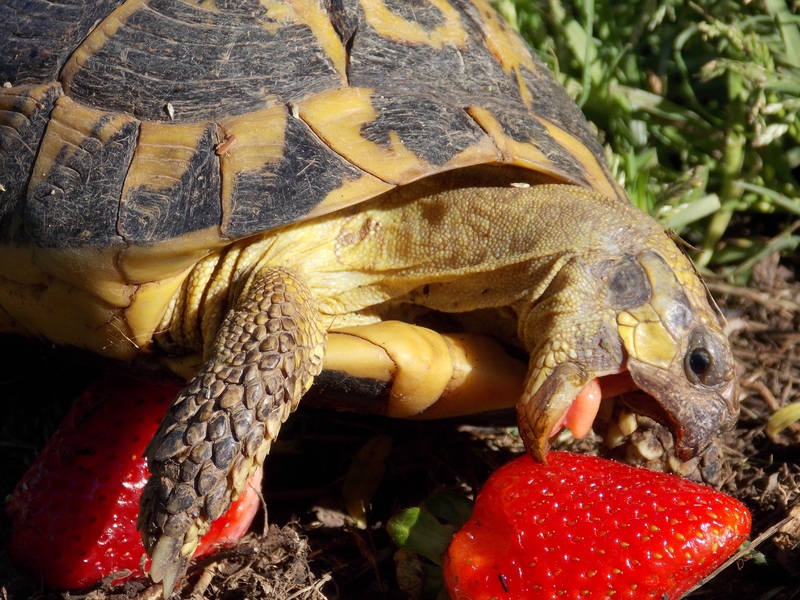
Leafy Greens
Leafy greens are an essential part of a turtle’s diet. They provide important nutrients and fiber that contribute to their overall health. Some common leafy greens that turtles can eat include spinach, kale, and collard greens. These greens are rich in vitamins A and C, which are important for maintaining a turtle’s immune system and promoting healthy growth.
Including a variety of leafy greens in your turtle’s diet is important to ensure they receive a balanced nutritional intake. It is recommended to rotate the types of greens you offer to provide different flavors and textures for your turtle.
Tip: When feeding leafy greens to your turtle, make sure to wash them thoroughly to remove any pesticides or chemicals that may be present. Additionally, it is best to offer organic greens whenever possible to minimize the risk of exposure to harmful substances.
Here is a table summarizing the nutritional content of some common leafy greens:
| Leafy Green | Vitamin A (IU) | Vitamin C (mg) |
|---|---|---|
| Spinach | 4696 | 28.1 |
| Kale | 6812 | 41.2 |
| Collard Greens | 6220 | 35.3 |
Turtles can live without food for extended periods of time. In the wild, they have adapted to survive during periods of food scarcity. However, it is not recommended to deprive your pet turtle of food for long periods. Turtles can typically survive without food for several weeks, but prolonged fasting can have negative effects on their health and well-being. It is important to provide regular and balanced meals for your turtle to ensure their nutritional needs are met.
Vegetables
Vegetables are an important part of a turtle’s diet. They provide essential vitamins, minerals, and fiber that contribute to their overall health. While turtles can eat a variety of vegetables, it’s important to note that not all vegetables are safe for them. Leafy greens such as kale, spinach, and romaine lettuce are highly recommended for turtles as they are rich in nutrients. Other safe vegetables include carrots, bell peppers, and squash. It’s best to offer a mix of different vegetables to ensure a well-rounded diet for your turtle.
When feeding vegetables to your turtle, it’s important to wash them thoroughly to remove any pesticides or chemicals. Chop the vegetables into small, bite-sized pieces to make it easier for your turtle to eat. Remember to remove any uneaten vegetables from the enclosure to prevent spoilage and bacterial growth.
It’s worth noting that while turtles can eat tomatoes, they should be given in moderation. Tomatoes are high in lycopene, a powerful antioxidant that can benefit turtles. However, tomatoes also contain solanine, a toxic substance that can be harmful to turtles if consumed in large quantities. It’s best to offer tomatoes as an occasional treat rather than a regular part of their diet.
As for the question of how long turtles can live without food, it depends on the species and the individual turtle’s health. Generally, turtles can survive for several weeks without food. However, prolonged periods without food can have negative effects on their health and well-being. It’s important to provide regular and appropriate meals for your turtle to ensure their nutritional needs are met.
Fruits
Fruits are a great addition to a turtle’s diet. They provide essential vitamins and minerals that contribute to their overall health. However, it’s important to note that not all fruits are suitable for turtles. Tomatoes are often a topic of debate when it comes to feeding turtles. While some turtles may enjoy eating tomatoes, it’s important to exercise caution. Tomatoes contain a substance called solanine, which can be harmful to turtles if consumed in large quantities. It’s best to offer tomatoes as an occasional treat rather than a regular part of their diet.
When it comes to feeding turtles, it’s important to provide a balanced and varied diet. This includes a mix of fruits, vegetables, and protein sources. Offering a variety of fruits ensures that turtles receive a range of nutrients. Some safe fruits for turtles include berries, melons, and apples. Remember to always wash fruits thoroughly before feeding them to your turtle.
How long can turtles live without food?
Turtles have a remarkable ability to survive without food for extended periods. In the wild, turtles can go without food for several weeks or even months, depending on the species and environmental conditions. This is because turtles have a slow metabolic rate and can conserve energy. However, it’s important to note that prolonged periods without food can have negative effects on a turtle’s health. It’s best to provide regular and appropriate meals for your pet turtle to ensure their well-being.
Protein Sources
Protein is an essential component of a turtle’s diet as it helps in the growth and repair of tissues. While turtles are primarily herbivorous, some species also consume protein-rich foods. Insects, such as crickets and mealworms, are a popular choice for providing protein to turtles. These small creatures are not only a good source of protein but also offer variety in their diet. It is important to ensure that the insects are gut-loaded with nutritious food before feeding them to turtles.
Another protein source for turtles is fish. Fish, such as small pieces of cooked salmon or trout, can be offered as an occasional treat. However, it is important to remove any bones and ensure that the fish is cooked thoroughly to avoid any potential health risks.
Remember, protein should be provided in moderation and should not be the primary component of a turtle’s diet. A balanced diet that includes a variety of foods is essential for their overall health and well-being.
Feeding Guidelines for Pet Turtles
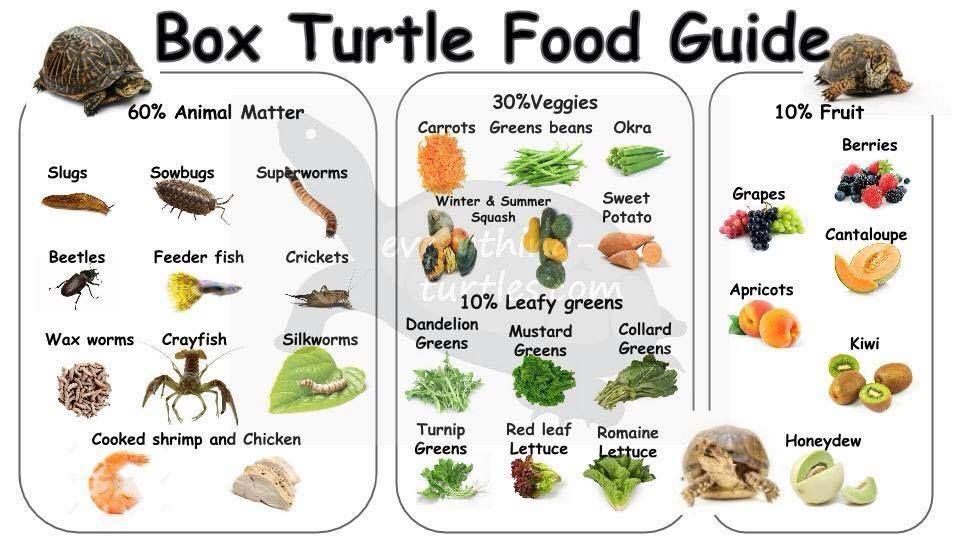
Determining the Right Diet for Your Turtle
Determining the right diet for your turtle is crucial for its overall health and well-being. Turtles are omnivorous, which means they can eat both plant-based and animal-based foods. However, it’s important to note that not all turtles have the same dietary needs. The specific diet of your turtle will depend on its species, age, size, and overall health.
When determining the right diet for your turtle, consider the following factors:
- Species: Different turtle species have different dietary preferences and requirements. Research the specific dietary needs of your turtle’s species to ensure you are providing the appropriate foods.
- Age: Young turtles may have different dietary needs compared to adult turtles. Consult with a veterinarian or reptile expert to determine the best diet for your turtle based on its age.
- Size: The size of your turtle can also impact its dietary requirements. Larger turtles may require more food or different types of food compared to smaller turtles.
It’s important to provide a balanced diet that includes a variety of foods. This can include leafy greens, vegetables, fruits, and protein sources such as insects or commercial turtle pellets. Tomatoes can be included in a turtle’s diet, but they should be given in moderation as a treat rather than a staple food. Tomatoes are high in water content and can be a good source of vitamins and minerals for turtles. However, they should not make up a significant portion of their diet as they do not provide all the necessary nutrients.
While turtles can survive for extended periods without food, it is not recommended to deprive them of food for long periods. Turtles can typically survive for several weeks without food, but prolonged periods of fasting can have negative effects on their health. It’s important to establish a regular feeding schedule and provide a balanced diet to ensure the overall well-being of your turtle.
Feeding Frequency
The feeding frequency for turtles depends on their age, size, and species. Generally, adult turtles can be fed every 2-3 days, while younger turtles may require daily feedings. It is important to monitor their weight and adjust the feeding schedule accordingly to prevent overfeeding or underfeeding.
Can Turtles Eat Tomatoes?
Turtles can eat tomatoes, but they should be given in moderation. Tomatoes are high in water content and have a low nutritional value for turtles. They should not be a staple part of their diet and should be offered as an occasional treat.
How Long Can Turtles Live Without Food?
Turtles have a slow metabolism and can survive without food for several weeks to months, depending on their species and health condition. However, it is not recommended to starve turtles intentionally as it can have negative effects on their overall health and well-being.
Portion Sizes
When it comes to feeding turtles, portion sizes are crucial to ensure their overall health and well-being. Overfeeding can lead to obesity and other health issues, while underfeeding can result in malnutrition. The appropriate portion size for a turtle depends on its size, age, and species.
It is important to note that turtles have a slow metabolism, so they do not require frequent feeding. Adult turtles can go for several weeks without food, while hatchlings and young turtles may need to be fed more frequently.
To determine the right portion size for your turtle, it is recommended to consult with a veterinarian or reptile specialist. They can provide guidance based on your turtle’s specific needs and help you create a balanced diet plan.
Remember, providing the right portion size is essential for maintaining your turtle’s health and ensuring they receive the necessary nutrients for a long and healthy life.
Supplements and Vitamins
Supplements and vitamins play a crucial role in ensuring the overall health and well-being of pet turtles. While a balanced diet consisting of a variety of foods is important, supplements can provide additional nutrients that may be lacking in their regular diet. One important supplement for turtles is calcium, which is essential for maintaining strong shells and bones.
In addition to calcium, turtles also require vitamin D for proper calcium absorption. Vitamin D helps regulate calcium levels in the body and promotes healthy bone growth. Without sufficient vitamin D, turtles may develop metabolic bone disease, which can lead to deformities and other health issues.
It is important to consult with a veterinarian or reptile specialist to determine the appropriate supplements and vitamins for your turtle’s specific needs. They can provide guidance on dosage and frequency of supplementation to ensure your turtle receives the necessary nutrients.
Remember, supplements and vitamins should not replace a balanced diet, but rather complement it to support your turtle’s overall health.
Common Mistakes in Turtle Diet
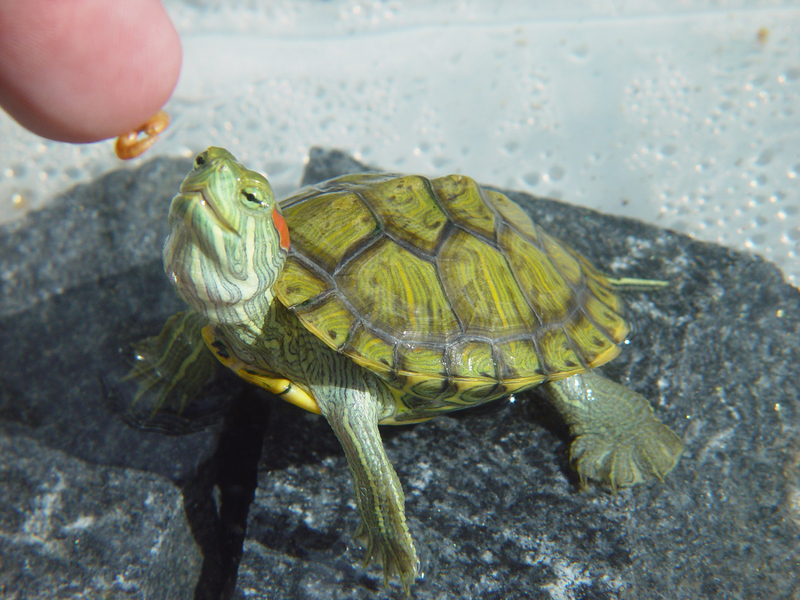
Feeding Incorrect Foods
Feeding turtles the wrong foods can have negative effects on their health and well-being. While turtles are known to be omnivorous, it is important to provide them with a balanced diet that meets their nutritional needs. Tomatoes are often a topic of debate when it comes to turtle diets. While some turtles may eat tomatoes, it is not recommended to include them as a regular part of their diet. Tomatoes are high in acidity and can cause digestive issues for turtles. It is best to stick to foods that are more suitable for their digestive system.
Turtles can survive for a period of time without food, but it is not ideal for their overall health. The exact duration varies depending on the species and individual turtle, but generally, turtles can go without food for several weeks to a few months. However, it is important to note that prolonged periods without food can weaken their immune system and lead to other health problems. It is always best to provide turtles with a regular and balanced diet to ensure their well-being.
Overfeeding
Overfeeding is a common mistake when it comes to feeding turtles. Excessive feeding can lead to obesity and other health issues in turtles. It is important to provide turtles with a balanced diet and not overfeed them.
Turtles have a slow metabolism, which means they can survive for extended periods without food. However, this does not mean that they should be deprived of food for long periods. Turtles can typically survive for several weeks without food, but it is not recommended to leave them without food for extended periods.
To ensure the health and well-being of your turtle, it is important to feed them a proper diet and avoid overfeeding. This includes providing them with the right amount of food and not leaving them without food for too long.
Lack of Variety
While turtles can eat a variety of foods, a lack of variety in their diet can have negative effects on their health. Variety is important because different foods provide different nutrients that turtles need to thrive. Feeding turtles the same food every day can lead to nutritional deficiencies and imbalances. It is recommended to offer a diverse range of foods to ensure turtles receive a balanced diet.
In addition to providing a variety of foods, it is also important to consider the nutritional value of the foods being offered. Some foods, like tomatoes, may not provide all the necessary nutrients that turtles require. While turtles can eat tomatoes in moderation, they should not be a staple part of their diet. Tomatoes are high in water content and low in essential nutrients, so they should be considered as an occasional treat rather than a regular food source.
Turtles can survive for a period of time without food, but it is not ideal for their health. The exact duration varies depending on the species and individual turtle, but generally, turtles can go without food for several weeks to a few months. However, prolonged periods of fasting can weaken their immune system and lead to health issues. It is important to provide regular and appropriate meals for turtles to ensure their overall well-being.
Neglecting Calcium and Vitamin D
Neglecting calcium and vitamin D in a turtle’s diet can have serious consequences for their health. Calcium is essential for the development and maintenance of strong bones and shells in turtles. Without enough calcium, turtles may develop soft shells, a condition known as shell deformities. This can make them more susceptible to injuries and infections.
In addition to calcium, vitamin D is crucial for turtles as it helps them absorb and utilize calcium effectively. Without sufficient vitamin D, turtles may suffer from metabolic bone disease, which can lead to weak bones, deformities, and even death.
It is important to provide turtles with a balanced diet that includes sources of calcium and vitamin D. This can be achieved through a combination of calcium-rich foods such as leafy greens, calcium supplements, and exposure to natural sunlight or UVB lighting.
Tip: Regularly monitor your turtle’s shell for any signs of softness or deformities, and consult a veterinarian if you suspect a calcium or vitamin D deficiency.
Signs of a Healthy Turtle Diet
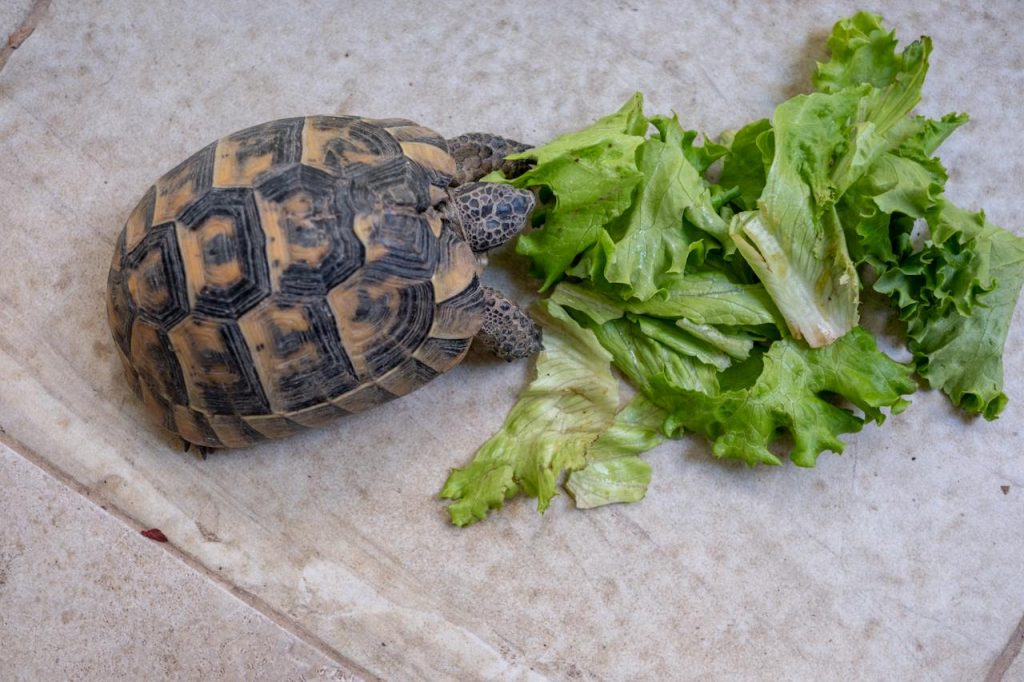
Strong Shell and Bones
Having a strong shell and bones is crucial for the overall health and well-being of turtles. Calcium plays a vital role in the development and maintenance of their shells and bones. It is important to provide turtles with a diet that is rich in calcium to ensure their shells and bones remain strong.
Turtles can obtain calcium from various sources, including leafy greens, such as kale and collard greens, and calcium supplements specifically formulated for turtles. It is essential to include these calcium-rich foods in their diet to prevent the development of shell deformities or weak bones.
Tip: To ensure your turtle gets enough calcium, you can dust their food with a calcium supplement powder. This will help meet their calcium requirements and promote the growth of strong shells and bones.
Regular and Solid Waste
Regular and solid waste is an important indicator of a turtle’s overall health and digestive system. Proper waste elimination is crucial for turtles to maintain a healthy balance in their bodies. When turtles consume a diet that is suitable for their species, their waste should be well-formed and solid. This indicates that their digestive system is functioning properly and that they are receiving the necessary nutrients from their food.
It is important to note that turtles have a slower metabolism compared to other animals, and they can go for extended periods without food. However, it is not recommended to intentionally deprive turtles of food for long periods of time. While turtles can survive without food for several weeks or even months, prolonged fasting can have negative effects on their health and well-being.
If you are unsure about the appropriate feeding schedule for your turtle, it is best to consult with a veterinarian or reptile specialist who can provide guidance based on your turtle’s specific needs.
Active and Energetic Behavior
Turtles are known for their active and energetic behavior, especially when they are well-nourished and have a balanced diet. Regular exercise is essential for turtles to maintain their overall health and well-being. It is important to provide them with an environment that allows for physical activity, such as a spacious enclosure or an outdoor pen.
While turtles can exhibit bursts of energy and engage in various activities, it is important to note that they are not constantly active. Turtles have periods of rest and may spend a significant amount of time basking or sleeping. This is a natural behavior for turtles and should not be a cause for concern.
However, if you notice a sudden decrease in your turtle’s activity levels, it could be a sign of an underlying health issue. In such cases, it is recommended to consult a veterinarian who specializes in reptiles.
To ensure that your turtle remains active and energetic, it is crucial to provide them with a proper diet that meets their nutritional needs. This includes a variety of foods that are suitable for their species and age. Feeding them a balanced diet will contribute to their overall well-being and help them thrive.
Special Considerations for Baby Turtles
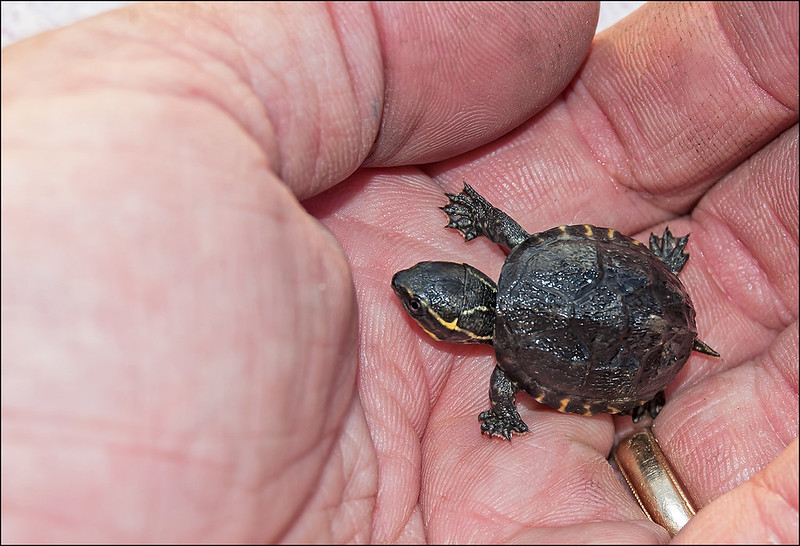
Different Nutritional Needs
Turtles have different nutritional needs at different stages of their life. Baby turtles require a diet that is high in protein and calcium to support their rapid growth and development. As they mature, their diet shifts towards a more balanced mix of protein, vegetables, and fruits. It is important to provide a varied diet that meets their specific nutritional requirements.
Without food, turtles can survive for extended periods of time. The exact duration depends on various factors such as the turtle’s species, age, and overall health. Some turtles have been known to survive without food for several months, while others may not be able to survive as long. However, it is important to note that depriving turtles of food for extended periods can have negative effects on their health and well-being. It is always best to provide regular and appropriate meals for turtles to ensure their overall health and longevity.
Feeding Schedule
Feeding schedules are crucial for maintaining the health and well-being of pet turtles. Consistency is key when it comes to feeding your turtle. It is recommended to establish a regular feeding routine and stick to it. Turtles should be fed daily or every other day, depending on their age and species.
It is important to note that turtles can go for extended periods without food. In the wild, turtles have adapted to survive during times of scarcity. Turtles can live without food for several weeks or even months, relying on their stored fat reserves. However, it is not recommended to intentionally deprive your turtle of food for long periods as it can lead to malnutrition and other health issues.
If you need to be away for an extended period, it is best to arrange for someone to care for your turtle and ensure they are fed regularly. Alternatively, you can use automatic feeders designed specifically for turtles to ensure they receive their meals on time.
Remember, a balanced and nutritious diet is essential for the overall well-being of your turtle.
Proper Calcium Intake
Proper calcium intake is crucial for the health and development of turtles. Calcium is essential for maintaining strong shells and bones. Without sufficient calcium, turtles can develop shell deformities and other health issues.
Turtles obtain calcium from their diet, and it is important to provide them with calcium-rich foods. Some examples of calcium-rich foods for turtles include leafy greens like kale and collard greens, as well as calcium supplements specifically formulated for turtles.
It is important to note that tomatoes are not a good source of calcium for turtles. While tomatoes may be safe for turtles to eat in moderation, they do not provide significant amounts of calcium. Therefore, it is recommended to include other calcium-rich foods in a turtle’s diet.
If turtles do not receive enough calcium in their diet, they may develop metabolic bone disease, which can lead to weakened bones and other serious health problems.
In conclusion, ensuring proper calcium intake is essential for the overall health and well-being of turtles.
Feeding Turtles in the Wild
Natural Food Sources
Turtles have a diverse diet that varies depending on their species and habitat. They are known to eat a wide range of foods, including plants, insects, fish, amphibians, and invertebrates. Some turtles are even known to consume carrion. However, it is important to note that not all turtles have the same dietary preferences. For example, herbivorous turtles primarily feed on vegetation such as algae, seaweed, and aquatic plants. On the other hand, carnivorous turtles have a diet that consists mainly of meat and fish. Omnivorous turtles have a more balanced diet, consuming both plant and animal matter.
Turtles are opportunistic feeders and will consume whatever food is available in their environment. This adaptability allows them to survive in a variety of habitats, from freshwater ponds to saltwater marshes. It is fascinating to observe how turtles have evolved to exploit different food sources in their natural habitats.
Impact of Human Feeding
Human feeding can have a significant impact on the diet of turtles. While turtles are opportunistic feeders and can consume a wide variety of foods, it is important to be cautious about what we feed them. Tomatoes, for example, are not a natural part of a turtle’s diet and should be avoided. Although turtles may eat tomatoes if offered, they do not provide the necessary nutrients and can even be harmful to their health.
Turtles can survive for extended periods without food. In the wild, they have adapted to periods of food scarcity by slowing down their metabolism and conserving energy. However, it is not recommended to deprive turtles of food for long periods as it can lead to malnutrition and other health issues. If you are unable to provide food for your turtle temporarily, it is best to consult a veterinarian for guidance on proper care and feeding.
Conservation Efforts
Conservation efforts play a crucial role in protecting turtle populations and their habitats. Organizations and individuals around the world are working tirelessly to ensure the survival of these fascinating reptiles. By preserving natural habitats, implementing sustainable fishing practices, and raising awareness about the importance of turtle conservation, we can help maintain healthy turtle populations for future generations.
It is important to note that turtles rely on a variety of food sources in their natural habitats. While tomatoes may not be a part of their natural diet, turtles are opportunistic feeders and may consume tomatoes if they come across them. However, it is recommended to avoid feeding tomatoes to turtles as a regular part of their diet due to the potential risks they pose.
Turtles can survive for extended periods without food. Some species, like the box turtle, have been known to survive for several months without eating. However, it is essential to provide turtles with a balanced and nutritious diet to ensure their overall health and well-being.
Conclusion
In conclusion, turtles can eat tomatoes as part of their diet. While their primary diet consists of aquatic plants, insects, and small fish, turtles have been observed consuming tomatoes in captivity. However, it is important to note that tomatoes should only be given to turtles in moderation as they are high in acidity and can cause digestive issues. It is always best to consult with a veterinarian or reptile expert before introducing new foods into a turtle’s diet. Overall, understanding the dietary needs of turtles is crucial for their health and well-being.
Frequently Asked Questions
Can turtles eat tomatoes?
Yes, turtles can eat tomatoes, but they should be fed in moderation and as part of a balanced diet.
Are tomatoes safe for all turtles?
While tomatoes are generally safe for turtles, some species may have specific dietary restrictions. It’s important to research the specific needs of your turtle species before feeding them tomatoes.
Should tomatoes be the main food for turtles?
No, tomatoes should not be the main food for turtles. They should be offered as a treat or occasional addition to their regular diet.
What other vegetables can turtles eat?
Turtles can eat a variety of vegetables, including leafy greens like spinach and kale, as well as carrots, cucumbers, and bell peppers.
Can turtles eat fruits?
Yes, turtles can eat fruits, but they should be given in moderation due to their high sugar content. Some suitable fruits for turtles include strawberries, blueberries, and melons.
Do turtles need protein in their diet?
Yes, turtles require protein in their diet for proper growth and development. Good sources of protein for turtles include insects, worms, and commercially available turtle pellets.
Can turtles eat meat?
Some turtle species are carnivorous and can eat meat. However, it’s important to offer them appropriate sources of meat, such as small fish or cooked chicken, and not rely solely on meat as their main diet.
What supplements should I give my turtle?
Turtles may require calcium and vitamin D supplements to support their shell and bone health. It’s best to consult with a veterinarian to determine the specific supplements and dosages suitable for your turtle.
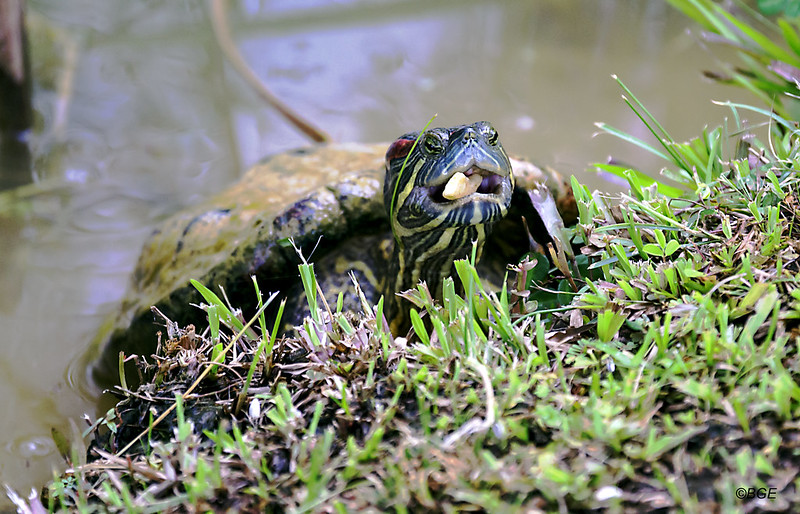
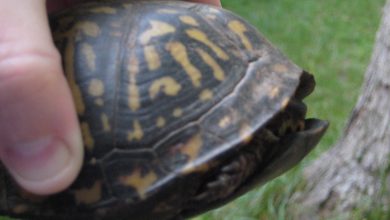
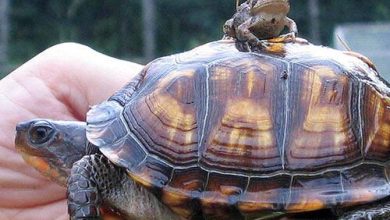
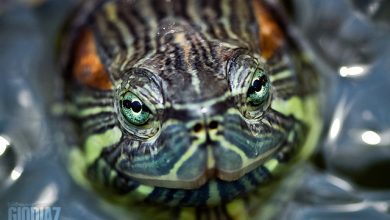
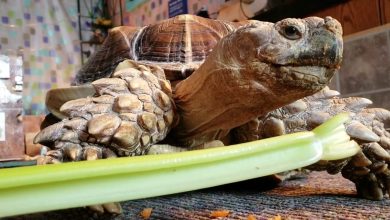
One Comment